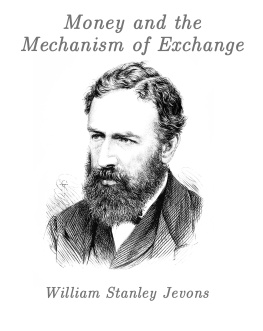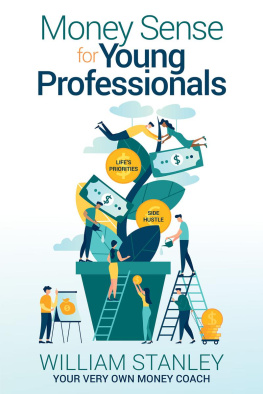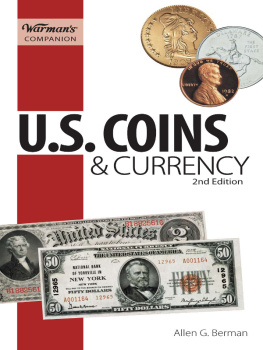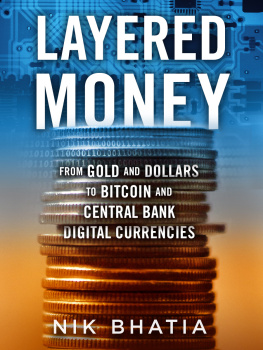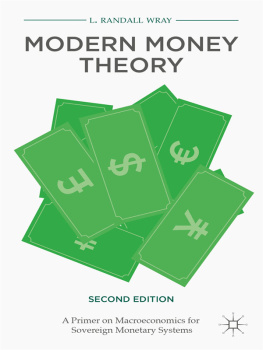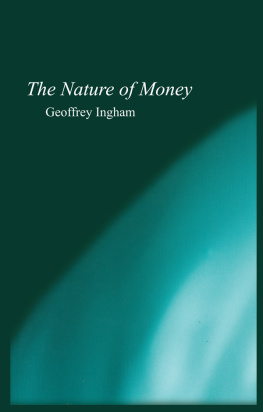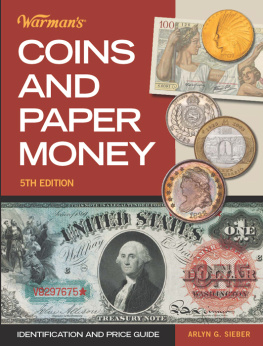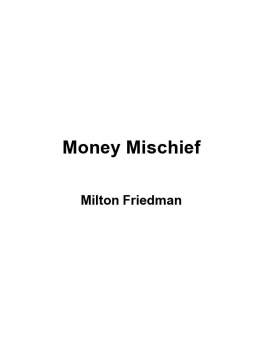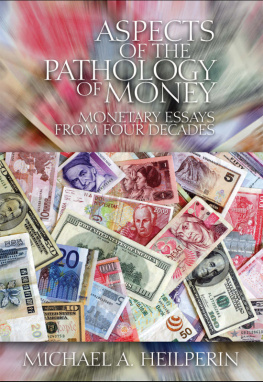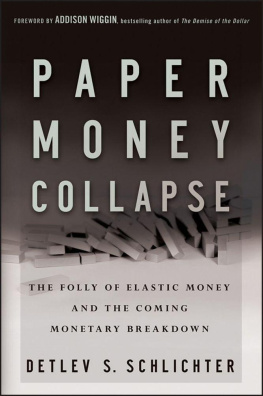Money and the Mechanism of Exchange
William Stanley Jevons
1876
Money and the Mechanism of Exchange
by William Stanley Jevons
First Publication Date 1875
Publisher New York: D. Appleton and Co.
Publication Date 1876
Copyright This text is in the public domain.
Preface
In preparing this volume, I have attempted to write a descriptive essay on the past and present monetary systems of the world, the materials employed to make money, the regulations under which the coins are struck and issued, the natural laws which govern their circulation, the several modes in which they may be replaced by the use of paper documents, and finally, the method in which the use of money is immensely economized by the cheque and clearing system now being extended and perfected.
This is not a book upon the currency question, as that question is so often discussed in England. I have only a little to say about the Bank Charter Act, and upon that, and other mysteries of the money market, I refer my readers to the admirable essay of Mr. Bagehot on "Lombard Street," to which this book may perhaps serve as an introduction.
There is much to be learnt about money before entering upon those abstruse questions, which barely admit of decided answers. In studying a language, we begin with the grammar before we try to read or write. In mathematics, we practice ourselves in simple arithmetic before we proceed to the subtleties of algebra and the differential calculus. But it is the grave misfortune of the moral and political sciences, as well shown by Mr. Herbert Spencer, in his "Study of Sociology," that they are continually discussed by those who have never laboured at the elementary grammar or the simple arithmetic of the subject. Hence the extraordinary schemes and fallacies every now and then put forth.
Currency is to the science of economy what the squaring of the circle is to geometry, or perpetual motion to mechanics. If there were a writer on Currency possessing some of the humour and learning of the late Professor De Morgan, he could easily produce a Budget of Currency Paradoxes more than rivalling De Morgan's Circle-Squaring Paradoxes. There are men who spend their time and fortunes in endeavouring to convince a dull world that poverty can be abolished by the issue of printed bits of paper. I know one gentleman who holds that exchequer bills are the panacea for the evils of humanity. Other philanthropists wish to make us all rich by coining the national debt, or coining the lands of the country, or coining everything. Another class of persons have long been indignant that, in this age of free trade, the Mint price of gold should still remain arbitrarily fixed by statute. A member of Parliament lately discovered a new grievance, and made his reputation by agitating against the oppressive restrictions on the coinage of silver at the Mint. No wonder so many people are paupers when there is a deficiency of shillings and sixpences, and when the amount merely of the rates and taxes paid in a year exceeds the whole sum of money circulating in the kingdom.
The subject of money as a whole is a very extensive one, and the literature of it would fill a very great library. Many changes are now taking place in the currencies of the world, and important inquiries have been lately instituted concerning the best mode of constituting the circulating medium. The information on the subject stored up in evidence given before Government Commissions, in reports of International Conferences, or in researches and writings of private individuals, is quite appalling in extent. It has been my purpose to extract from this mass of literature just such facts as seem to be generally interesting and useful in enabling the public to come to some conclusion upon many currency questions which press for solution. Shall we count in pounds, or dollars, or francs, or marks? Shall we have gold or silver, or gold and silver, as the measure of value? Shall we employ a paper currency or a metallic one? How long shall we in England allow our gold coinage to degenerate in weight? Shall we recoin it at the expense of the State or of the unlucky individuals who happen to hold light sovereigns?
In America the questions are still more important and pressing, involving the return to specie payments, the future regulation of the paper currency, its partial replacement by coin, and the exact size and character of the American dollar, regarded in relation to international currency. Germany is in the midst of a great, and probably a sound and successful, reorganization of the currency, both metallic and paper. In France the great debate upon the double versus the single standard is hardly yet terminated, and active measures are being taken to place the paper issues on a convertible basis. Among the other countries of Europe-Italy, Austria, Holland, Belgium, Switzerland, the Scandinavian kingdoms and Russia-there is hardly one which is not at present reforming its currency, or has lately done so, or is discussing the proper method of attempting the task. As regards all such changes, we should remember that in the present we are ever moulding the future, and that a world-wide system of international money, though it may seem impracticable at the moment, is an object at which all those should aim who wish to leave the world better than they found it.
I wish to acknowledge the assistance which I have derived from the works of Mr. Seyd, especially his treatise on "Bullion and the Foreign Exchanges," from Professor Sumner's "History of the American Currency," M. Chevalier's work "La Monnaie," M. Wolowski's various important publications upon money, and many valuable articles in the Journal des Economistes. I must express my thanks to many bankers and gentlemen for information and assistance kindly rendered to me, especially to Mr. John Mills, Mr. T. R. Wilkinson, Mr. Roberts, the chemist of the Royal Mint, and Mr. E. Helm.
I should also like to take this opportunity of thanking those gentlemen who have from time to time sent me documents and publications bearing upon the subject of money, which have proved very valuable. I may mention especially a series of reports and documents concerning the American mint and currency received through the kindness of the Director of the Mint, and of Mr. Walker and Mr. E. Dubois.
I am much indebted to Mr. W. H. Brewer, M.A., for carefully reading the whole of the proofs, and to Professor T. E. Cliffe Leslie, Mr. R. H. Inglis Palgrave, and Mr. Frederick Hendriks for examining particular portions.
~ May 31st, 1875.
Barter
Some years since, Mademoiselle Zlie, a singer of the Thtre Lyrique at Paris, made a professional tour round the world, and gave a concert in the Society Islands. In exchange for an air from Norma and a few other songs, she was to receive a third part of the receipts. When counted, her share was found to consist of three pigs, twenty-three turkeys, forty-four chickens, five thousand cocoa-nuts, besides considerable quantities of bananas, lemons, and oranges. At the Halle in Paris, as the prima donna remarks in her lively letter, printed by M. Wolowski, this amount of live stock and vegetables might have brought four thousand francs, which would have been good remuneration for five songs. In the Society Islands, however, pieces of money were very scarce; and as Mademoiselle could not consume any considerable portion of the receipts herself, it became necessary in the mean time to feed the pigs and poultry with the fruit.
When Mr. Wallace was travelling in the Malay Archipelago, he seems to have suffered rather from the scarcity than the superabundance of provisions. In his most interesting account of his travels, he tells us that in some of the islands, where there was no proper currency, he could not procure supplies for dinner without a special bargain and much chaffering upon each occasion. If the vendor of fish or other coveted eatables did not meet with the sort of exchange desired, he would pass on, and Mr. Wallace and his party had to go without their dinner. It therefore became very desirable to keep on hand a supply of articles, such as knives, pieces of cloth, arrack, or sago cakes, to multiply the chance that one or other article would suit the itinerant merchant.
Next page
